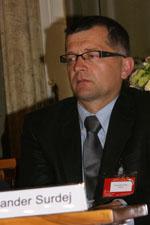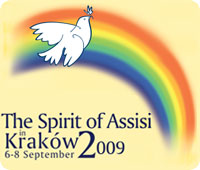
Expert in Economics, Poland
|
Some Conceptual Confusions Common to Economists and Their Real Life Implications
Voice to the panel XV „Spiritual Dimension of Man and Economic Crisis”
Krakow, 7 September 2009
I. Introduction
Economic ideas matter since they influence the behaviour of individuals and actions of governments, although their impact might be delayed and indirect. So, what has gone wrong with dominant economic thinking and where are the sources of costly mistakes as evidenced among other by the current financial crisis? In this short discussion I will point to three kinds of problems with dominant/orthodox economic thinking. First problem can be called the confusion of means and ends of economic activities and subsequently the wrong use of economic measures. Second problem can be called the illusion of financial wealth and unjustified weight of financial services. Third problem results from a decontextualized concept of markets and economic activities. All of them need to be corrected in order to create and sustain an economy which is productive and friendly to people. Let us shortly describe and discuss them.
II. Confusing Means for Ends
Although a quick insight makes everybody to recognize that earning income and making money is not the true goal of human existence, but rather a survival requirement and precondition for other, precious, non economic aims, at a societal level we tend to support efforts to increase income losing from our sight that it is not the true end of human activities and even more dangerously we use as a measure of wealth GDP (Gross Domestic Product) constructed without possibility to differentiate between socially beneficial and socially detrimental activities and outcomes. Thus, for instance cigarette production and spending on cancer medical treatments add to the increase of nation’s GDP although the former is detrimental to human life and the latter serves to restore people’s health. GDP as is currently measured does not account for damages we make to the environment and living conditions of future generations and yet, in a popular perception, it has, it should be constantly increasing. The knowledge of the deficiency of GDP as a measure of wealth, wellbeing and its treatment as a proxy for all virtuous outcomes is clearly wrong and should be corrected.
III. Illusions of Purely Financial Wealth
The value of economic activities and products is expressed in financial terms - in money. Finances are important to activate and (re) direct economic activities. Yet their role should be seen as important, but subsidiary to the activities that generate products and services which in turn satisfy human needs.
Financial innovations and telecommunication revolution have allowed to create “a new brave world of global finance” in which money (or rather electronic, binary coded, impulses) moves in “real time” across the globe and creates waves of “local capital abundance” often “followed by acute capital shortage”: they create imbalances, “booms and busts” – financial crises.
The importance of finances and technical difficulty in understanding some “financial products” have attracted to the financial sectors talents and rewards. In the US the weight of financial services measured as a share of the country’s GDP has doubled over recent decades to approx. 7 percent and the financial sector generated almost one third of profits in the whole sector of American enterprises. But, can finance alone produce wealth? Can sole mathematical talents generate need satisfying products?
The current financial crises has various deep, let us call them, structural causes, but untamed finances have been without doubts its direct cause. With this crisis of financial globalization we discover that financial flows can be “a weapon of mass wealth destruction”.
IV. Fallacy of Decontextualized Markets
In most of academic teaching markets are presented as transaction and activities rationally driven by the pursuit of profits. Thus, an economy and acting people are presented as narrow gain maximizers solving mathematical equations.
What might be useful as simplifying assumptions needed to develop testable propositions is clearly false as the representation of reality and potentially detrimental when used as a policy advice. In fact there is a tendency to treat all markets as subspecies of financial markets and to postulate that they should be ever more mobile, ever more fluid as this is the only way to the increasing wealth.
But, is this always a wellbeing, welfare increasing change? When people emigrate for work (or in search of higher incomes) and destroy their families and damage children education, how large should be an increase of income to compensate for such losses.
Even if we do not have good remedies for such problems we should not ban them as outside the scope of our analysis. An economist should worry, if his advise may threaten people’s chance to pursue other goals.
V. Instead of Conclusions
In His message for the Celebration of the World Day of Peace on 1 January 2000 John Paul II wrote “Perhaps the time has come for a new and deeper reflection on the nature of the economy and its purposes. What seems to be urgently needed is a reconsideration of the concept of "prosperity" itself, to prevent it from being enclosed in a narrow utilitarian perspective which leaves very little space for values such as solidarity and altruism.”
After almost 10 years and in the light of current financial crisis we readily recognize the utmost importance of this call. Economists should go beyond building and testing of models based on a narrow set of assumptions, and if they do so for academic purposes, they should understand the limits of such approaches. They should explain that GDP measured income should be supplemented by other indicators in order to avoid its biases. They should not treat finances as self-referential activities and they should a value in capital speed reducing measures and they should learn how to improve markets while accounting for values and norms people want to preserve.
|

